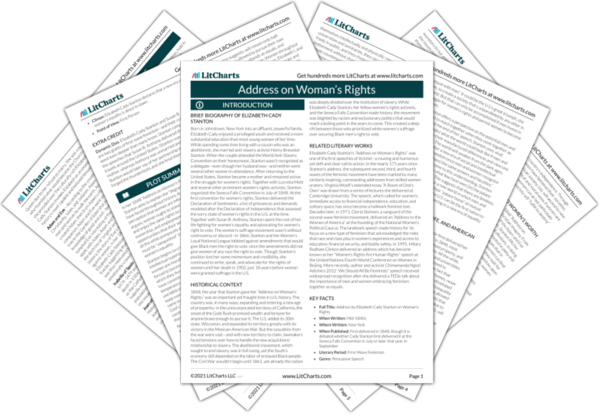Stanton’s activism, which would later come to be known as first-wave feminism, wasn’t defined by the assertion that women deserved more than men or that they were inherently superior to men. Instead, Stanton defined her politics by the belief that men and women had been created by God as equals, and so should treat one another as equals in all matters. One sex’s behaviors and actions, she suggested, always had an impact on the other. The world, Stanton believed, had become corrupt and vulgar due to society’s refusal to hold men accountable for their behavior. So women didn’t need the freedom to act vulgarly, too—rather, men needed to get their act together and behave in a way befitting a creature of God.
